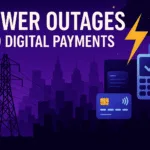Sweden’s Riksbank has made an important step towards enhancing offline card payments infrastructure. The bank, along with key payment market representatives, has agreed to increase the capacity for offline card payments for essential goods.
The latest news from Riksbank reveals this joint effort as a vital step. It ensures that everyone, irrespective of their location or internet connectivity, can access necessary goods hassle-free. Additionally, businesses stand to benefit from a wider customer base and increased sales.
This initiative is part of a broader trend towards inclusivity in digital payments. As the transition to cashless transactions continues, creating robust offline payment systems is crucial to avoid leaving anyone behind.
Full Support for Offline Payments by July 2026
The agreement isn’t merely a plan on paper. Riksbank has set a deadline for its implementation. By July 2026, the Swedish central bank aims to fully support offline card payments. Consequently, within the next five years, a more seamless and inclusive payment environment is anticipated.
The need for such a development is more pressing than ever. As we shift towards a digital economy, the risk of digital exclusion rises. By expanding offline card payments, Riksbank is taking a significant step towards mitigating this risk.
Offline card payments for essential goods can be a lifeline for those in remote areas with limited or no internet connectivity. It also provides an alternative for those wary of the online economy due to privacy or security concerns.
Through this agreement, Sweden’s Riksbank is leading the way for other central banks worldwide. This move acknowledges the significance of offline card payments in a digital economy and takes tangible steps to ensure their availability and reliability. It serves as a reminder that while digital payments offer convenience and speed, offline options are equally crucial for economic participation.















